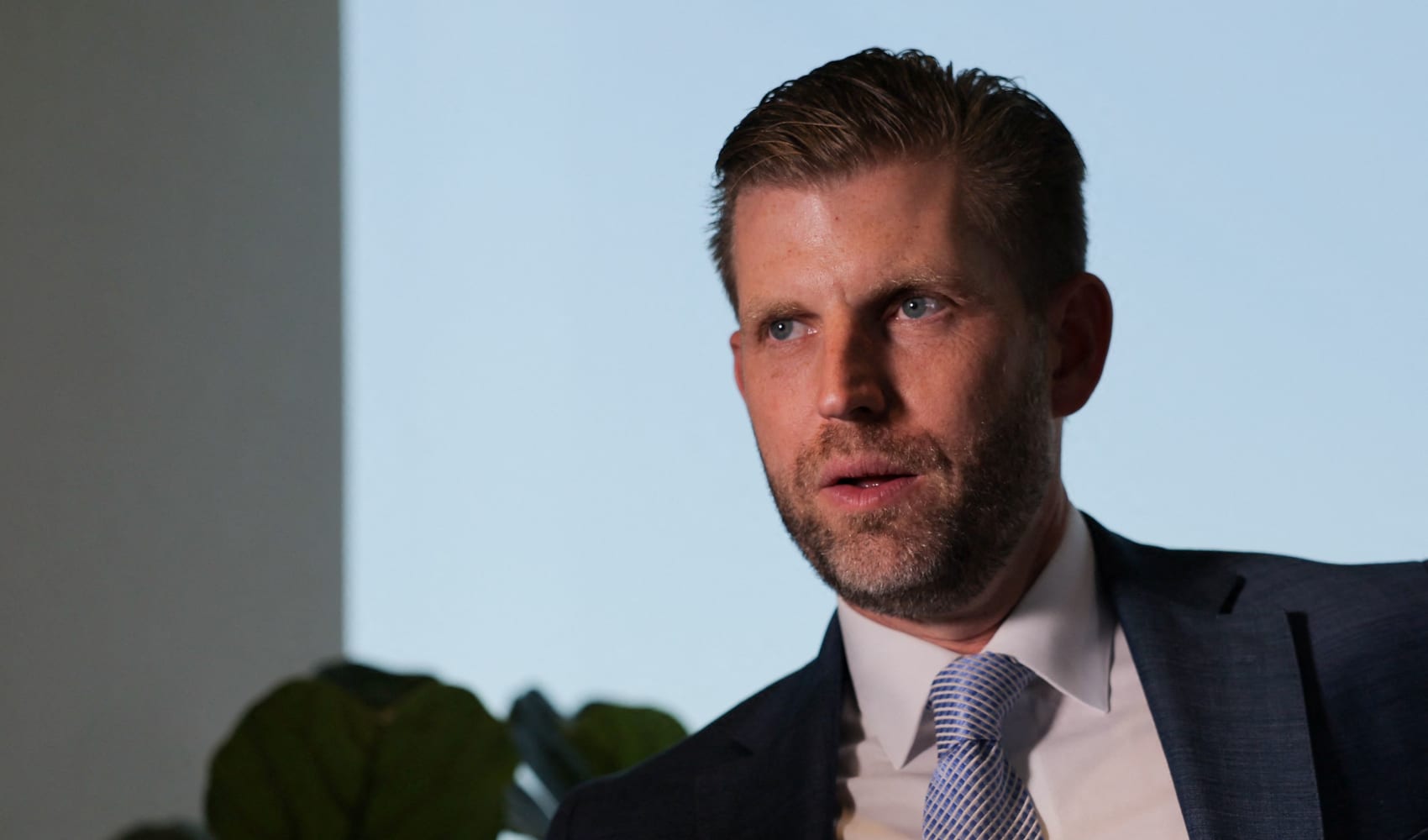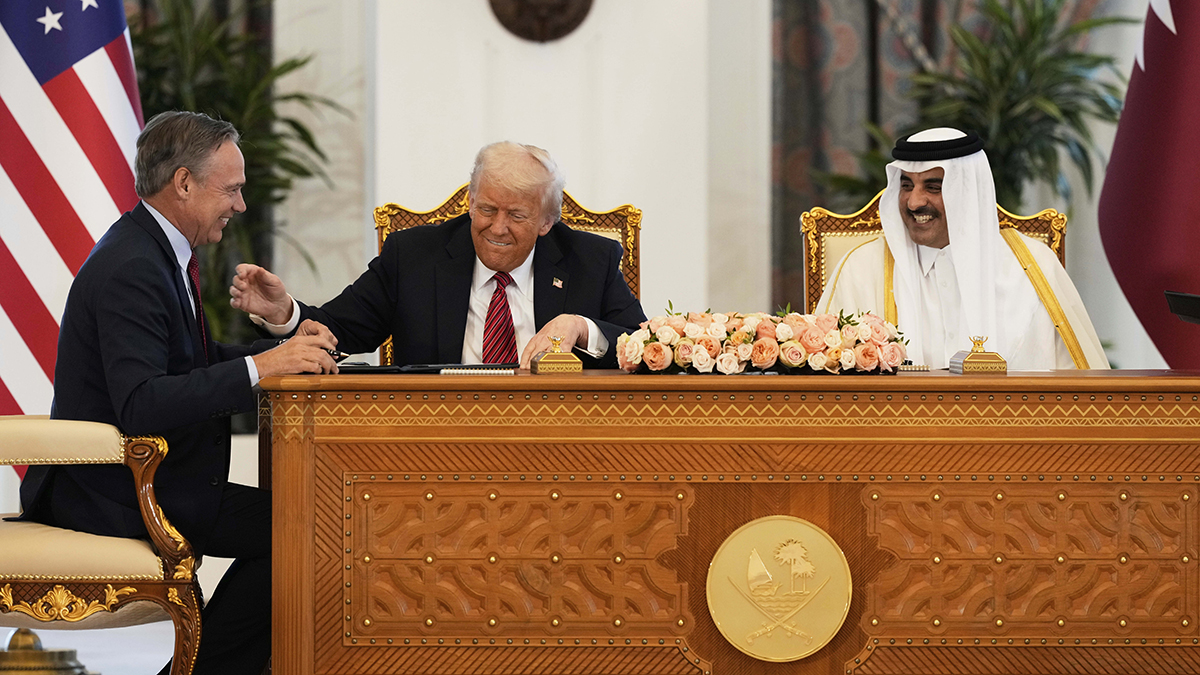Banks Extinct in 10 Years? Eric Trump's Bold Prediction
Eric Trump's Bold Prediction: Banks Face Extinction in 10 Years!
Introduction: A Wake-Up Call for the Banking Industry?
Are you ready for a financial revolution? Eric Trump, the Executive Vice President of the Trump Organization, certainly thinks one is brewing. In a recent interview, he delivered a stark warning to the banking industry: adapt or face extinction within the next decade. But is this just another sensational headline, or does it hold real weight? Let's dive in and explore the reasons behind this bold prediction and what it could mean for your wallet.
Eric Trump's Critique of the Current Financial System
The Modern System: Slow, Expensive, and Broken?
According to Eric Trump, the current financial system is riddled with inefficiencies. "The modern financial system is broken, it's slow, it's expensive," he stated. Think about it: how often do you face transaction fees, slow processing times, or frustrating bureaucratic hurdles when dealing with traditional banks? These pain points are precisely what's fueling the rise of alternative financial solutions.
Traditional Banking: A Dinosaur in the Digital Age?
Imagine a dinosaur trying to navigate a world built for sleek, agile mammals. That’s how Trump views traditional banking in the age of digital finance. The old guard is struggling to keep up with the rapid pace of innovation, clinging to outdated systems while new technologies are streamlining financial processes.
The Allure of Decentralized Finance (DeFi)
Bypassing Traditional Banking: A New Paradigm
Decentralized finance (DeFi) is emerging as a compelling alternative to traditional banking. But what exactly is DeFi? It's a system built on blockchain technology that aims to eliminate intermediaries, like banks, from financial transactions. Think of it as cutting out the middleman, leading to lower costs and faster processing times.
Lower Costs and Increased Privacy: DeFi's Key Advantages
Trump specifically highlighted the cost savings and privacy benefits of DeFi. "A vocal advocate of digital currencies, the younger Trump lauded decentralized finance as a way to bypass the costs and lack of privacy of traditional banks." DeFi offers a potential escape from hefty bank fees and intrusive data collection.
The United Arab Emirates: A Crypto Hub Emerges
Dubai: A Magnet for Cryptocurrency Innovation
Eric Trump's frequent visits to the United Arab Emirates (UAE) are no coincidence. Dubai, in particular, is rapidly becoming a global hub for cryptocurrency. The country's progressive regulatory environment and embrace of new technologies are attracting crypto entrepreneurs and investors from around the world. The UAE is actively positioning itself as a leader in the digital finance revolution.
Why Dubai? Understanding the UAE's Crypto Strategy
The UAE's focus on cryptocurrency is driven by a desire to diversify its economy and attract foreign investment. By creating a favorable environment for crypto businesses, the UAE aims to become a major player in the global digital economy. This forward-thinking approach is creating exciting opportunities for innovation and growth.
The Challenges Facing Traditional Banks
Legacy Systems: An Albatross Around Their Necks
Traditional banks are burdened by legacy systems – outdated software and infrastructure that are difficult and expensive to update. Imagine trying to build a modern skyscraper on a foundation designed for a small cottage. These legacy systems hinder their ability to compete with nimble, tech-savvy FinTech companies.
Regulatory Hurdles: Navigating a Complex Landscape
Banks also face significant regulatory hurdles. Compliance with complex and ever-changing regulations adds to their operating costs and slows down their ability to innovate. These regulations, while necessary, can inadvertently stifle innovation and make it harder for banks to adapt.
The Rise of FinTech and Digital Banking
FinTech Disruptors: Challenging the Status Quo
FinTech companies are disrupting the financial industry with innovative solutions that address the shortcomings of traditional banks. From mobile payment apps to online lending platforms, these companies are offering consumers faster, cheaper, and more convenient financial services. They're forcing banks to rethink their business models and embrace new technologies.
Digital Banking: A Step in the Right Direction?
Many traditional banks are now offering digital banking services, but are they doing enough? While online banking is a step in the right direction, it often doesn't address the fundamental issues of high fees and slow processing times. To truly compete, banks need to go beyond simply digitizing their existing services and embrace a more radical transformation.
The Future of Finance: Predictions and Possibilities
A Hybrid Model: The Most Likely Scenario?
It's unlikely that traditional banks will completely disappear in the next 10 years, but they will need to adapt significantly to survive. A hybrid model, where banks integrate DeFi technologies and offer more customer-centric services, is the most likely scenario.
The Importance of Innovation: Banks Must Embrace Change
The key to survival for traditional banks is innovation. They must invest in new technologies, streamline their operations, and offer more competitive products and services. Those who fail to adapt will be left behind in the dust.
Investing in the Future: Opportunities in Crypto and DeFi
Navigating the Crypto Landscape: A Word of Caution
Investing in cryptocurrency and DeFi can be risky, so it's important to do your research and understand the potential downsides. Volatility, security risks, and regulatory uncertainty are all factors to consider.
Due Diligence: The Key to Successful Crypto Investments
Before investing in any cryptocurrency or DeFi project, it's crucial to conduct thorough due diligence. Understand the technology, the team behind the project, and the potential risks and rewards. Don't invest more than you can afford to lose.
The Impact on Consumers: What Does This Mean for You?
Lower Fees and Faster Transactions: A Win for Consumers
The rise of DeFi and FinTech could lead to lower fees and faster transactions for consumers. Competition among financial service providers will drive down costs and improve efficiency. This is good news for anyone who is tired of paying exorbitant bank fees and waiting days for transactions to clear.
Greater Financial Inclusion: Expanding Access to Services
DeFi has the potential to expand access to financial services for underserved populations. By eliminating intermediaries and reducing costs, DeFi can make it easier for people in developing countries to access credit, savings, and investment opportunities. This could have a profound impact on global poverty and inequality.
Conclusion: The Financial Landscape is Shifting
Eric Trump's warning to banks is a wake-up call for the entire financial industry. The rise of DeFi and FinTech is disrupting the status quo and forcing traditional banks to adapt or risk becoming obsolete. The future of finance will be shaped by innovation, competition, and a focus on customer needs. Whether you are an investor, a banker, or simply a consumer, it's important to stay informed and prepared for the changes that are coming.
Frequently Asked Questions
Here are some frequently asked questions about the future of banking and the rise of decentralized finance:
-
What is DeFi (Decentralized Finance)?
DeFi refers to financial services built on blockchain technology that operate without intermediaries like banks. These services include lending, borrowing, trading, and investing.
-
What are the advantages of DeFi over traditional banking?
DeFi offers potential advantages such as lower fees, faster transaction times, increased privacy, and greater accessibility for underserved populations.
-
Is it safe to invest in cryptocurrency and DeFi projects?
Investing in cryptocurrency and DeFi can be risky. It's important to do your research, understand the risks, and only invest what you can afford to lose.
-
Will traditional banks disappear completely?
It's unlikely that traditional banks will disappear completely, but they will need to adapt significantly to compete with DeFi and FinTech companies. A hybrid model, where banks integrate DeFi technologies, is a likely scenario.
-
How will the rise of DeFi affect me as a consumer?
The rise of DeFi could lead to lower fees, faster transactions, and greater access to financial services for consumers. Competition among financial service providers will drive down costs and improve efficiency.


